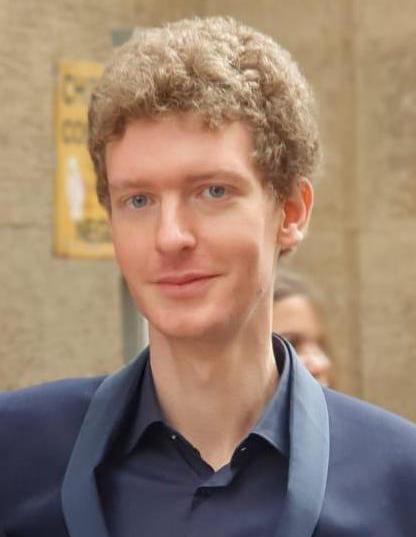Studying at the University of Verona
Here you can find information on the organisational aspects of the Programme, lecture timetables, learning activities and useful contact details for your time at the University, from enrolment to graduation.
Academic calendar
The academic calendar shows the deadlines and scheduled events that are relevant to students, teaching and technical-administrative staff of the University. Public holidays and University closures are also indicated. The academic year normally begins on 1 October each year and ends on 30 September of the following year.
Course calendar
The Academic Calendar sets out the degree programme lecture and exam timetables, as well as the relevant university closure dates..
| Period | From | To |
|---|---|---|
| Sem. 1A | Sep 24, 2018 | Nov 10, 2018 |
| Sem. 1B | Nov 19, 2018 | Jan 12, 2019 |
| Sem. 2A | Feb 18, 2019 | Mar 30, 2019 |
| Sem. 2B | Apr 8, 2019 | Jun 1, 2019 |
| Session | From | To |
|---|---|---|
| Sessione Invernale | Jan 14, 2019 | Feb 16, 2019 |
| Sessione Estiva (Gli esami sono sospesi durante la Sessione di laurea) | Jun 3, 2019 | Jul 27, 2019 |
| Sessione Autunnale | Aug 26, 2019 | Sep 21, 2019 |
| Session | From | To |
|---|---|---|
| Sessione Estiva | Jul 8, 2019 | Jul 13, 2019 |
| Sessione Autunnale | Nov 4, 2019 | Nov 9, 2019 |
| Sessione Invernale | Mar 30, 2020 | Apr 4, 2020 |
| Period | From | To |
|---|---|---|
| Festa di Ognissanti | Nov 1, 2018 | Nov 1, 2018 |
| Festa dell’Immacolata | Dec 8, 2018 | Dec 8, 2018 |
| Vacanze di Natale | Dec 22, 2018 | Jan 6, 2019 |
| Vacanze di Pasqua | Apr 19, 2019 | Apr 23, 2019 |
| Festa della liberazione | Apr 25, 2019 | Apr 25, 2019 |
| Festa del lavoro | May 1, 2019 | May 1, 2019 |
| Festa del Santo Patrono - S. Zeno | May 21, 2019 | May 21, 2019 |
| Festa della Repubblica | Jun 2, 2019 | Jun 2, 2019 |
| Vacanze Estive | Aug 12, 2019 | Aug 17, 2019 |
Exam calendar
Exam dates and rounds are managed by the relevant Humanistic Studies Teaching and Student Services Unit.
To view all the exam sessions available, please use the Exam dashboard on ESSE3.
If you forgot your login details or have problems logging in, please contact the relevant IT HelpDesk, or check the login details recovery web page.
Should you have any doubts or questions, please check the Enrollment FAQs
Academic staff
 evita.calabrese@univr.it
evita.calabrese@univr.it
 sofia.piacentin@univr.it
sofia.piacentin@univr.it
 pieralberto.porcedducilione@univr.it; pierre_pordd@yahoo.it
pieralberto.porcedducilione@univr.it; pierre_pordd@yahoo.it
 045 8028732
045 8028732
Study Plan
The Study Plan includes all modules, teaching and learning activities that each student will need to undertake during their time at the University.
Please select your Study Plan based on your enrollment year.
1° Year
| Modules | Credits | TAF | SSD |
|---|
2° Year activated in the A.Y. 2019/2020
| Modules | Credits | TAF | SSD |
|---|
3° Year activated in the A.Y. 2020/2021
| Modules | Credits | TAF | SSD |
|---|
| Modules | Credits | TAF | SSD |
|---|
| Modules | Credits | TAF | SSD |
|---|
| Modules | Credits | TAF | SSD |
|---|
| Modules | Credits | TAF | SSD |
|---|
Legend | Type of training activity (TTA)
TAF (Type of Educational Activity) All courses and activities are classified into different types of educational activities, indicated by a letter.
General sociology (2019/2020)
Teaching code
4S007529
Teacher
Coordinator
Credits
6
Also offered in courses:
- Social theory of the course Bachelor's degree in Philosophy
Language
Italian
Scientific Disciplinary Sector (SSD)
SPS/07 - GENERAL SOCIOLOGY
Period
Sem. 1A dal Sep 23, 2019 al Oct 31, 2019.
Learning outcomes
The general objective of the course is to provide a basic knowledge of the theoretical-empirical reflections and acquisitions elaborated by sociology in relation to the different aspects of contemporary society, in order to identify the specific contribution of this discipline in characterizing the structural dynamics and processes changes that cross and qualify society.
Program
After having presented the main features of Durkheimian sociology, the course will focus on two of the most original innovators of this theoretical tradition, i. e. Erving Goffman and Pierre Bourdieu. On one hand, drawing on Goffman, we will discuss the social processes of construction of individuality and those regarding the ritual order of social interaction. On the other hand, drawing on Bourdieu, we will take into consideration concepts such as those of habitus, fields, symbolic capital and symbolic violence.
Prerequisites:
To fully understand the contents of the course it is not requested any particular knowledge, except some general notions of history of modern and contemporary philosophy.
CONTENTS:
Émile Durkheim
What is social order? The Durkheim's answer
Social sanctions and moral sanctions
The coercive nature of social facts and the role of emotions regarding social solidarity
Civil society, the State, and social solidarity
Religion, rituality and social solidarity
Erving Goffman
Being individual as a social fact;
the ritual construction of individuality: the face-work;
deference and demeanor as forms of self construction;
the ritual order and the social construction of reality;
the interaction order as a sui generis form of social order.
Pierre Bourdieu
The objectivism/subjectivism dilemma;
the interiorization of the social: the concept of habitus;
the exteriorization of the social: the concept of field;
the forms of capital: culture, economics, society symbols;
social order, social injustice and symbolic violence.
| Author | Title | Publishing house | Year | ISBN | Notes |
|---|---|---|---|---|---|
| Bourdieu P. | Campo del potere e campo intellettuale | Manifestolibri | 2002 | SOLO pp. 51-82 | |
| Goffman E. | Il rituale dell'interazione | Il Mulino | 1988 | SOLO pp. 95-164 | |
| Goffman E. | La vita quotidiana come rappresentazione | Il Mulino | 1997 | SOLO pp. 95-164 | |
| Durkheim É. | Le forme elementari della vita religiosa | Meltemi | 2005 | SOLO pp. 243-297 | |
| Durkheim É. | Le regole del metodo sociologico. Sociologia e Filosofia | Edizioni di Comunità | 1996 | SOLO pp. 23-57 e pp. 165-206 | |
| Durkheim É. | Lezioni di sociologia | Etas | 1973 | SOLO pp. 91-100 | |
| Goffman E. | L'ordine dell'interazione | Armando | 1998 | ||
| Bourdieu P. | Meditazioni pascaliane | Feltrinelli | 1998 | SOLO pp. 135-216 | |
| Bourdieu P., Wacquant L. J. D. | Risposte. Per un’antropologia riflessiva | Bollati Boringhieri | 1992 | SOLO pp. 66-135 | |
| Bourdieu P. | The forms of capital. In: J. Richardson, (ed.) Handbook of Theory and Research for the Sociology of Education | Greenwood. | 1986 |
Examination Methods
The final exam will consist of a written test. The candidate will have to answer to 4 open questions in 2 hours of time. Three questions will deal with the topics presented and discussed during the course. The fourth question will try to elicit the critical analysis skills of the candidates. More clearly, the students will be asked to provide a personal reflection on some topics treated during the course (a comparison, a critical comment, an empirical exemplificaton, etc.)
EVALUATION CRITERIA:
- the degree of comprehension of the discipline;
- the degree of comprehension of the single concepts;
- the capacity of presenting theoretical problems;
- the mastery of the disciplinary lexicon;
- the capacity to connect different topics;
- The capacity to provide powerful empirical exemplification of the theoretical concepts discussed.
Type D and Type F activities
Modules not yet included
Career prospects
Module/Programme news
News for students
There you will find information, resources and services useful during your time at the University (Student’s exam record, your study plan on ESSE3, Distance Learning courses, university email account, office forms, administrative procedures, etc.). You can log into MyUnivr with your GIA login details: only in this way will you be able to receive notification of all the notices from your teachers and your secretariat via email and soon also via the Univr app.
Student mentoring
Linguistic training CLA
Gestione carriere
Practical information for students
Documents
| Title | Info File |
|---|---|
|
|
pdf, it, 325 KB, 02/05/23 |
|
|
pdf, it, 212 KB, 02/05/23 |
|
|
pdf, it, 131 KB, 02/05/23 |
Graduation
Documents
| Title | Info File |
|---|---|
|
|
pdf, it, 99 KB, 13/10/23 |
|
|
pdf, it, 101 KB, 10/04/24 |

































